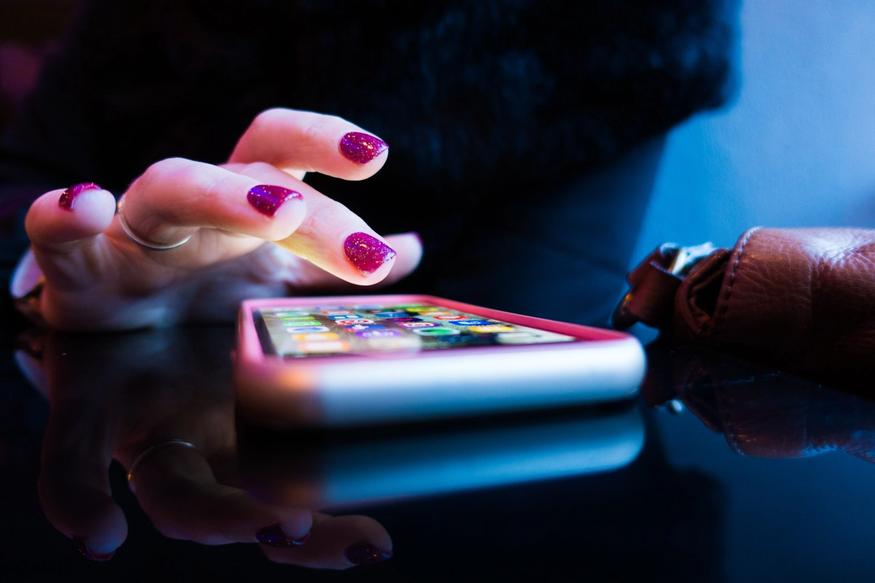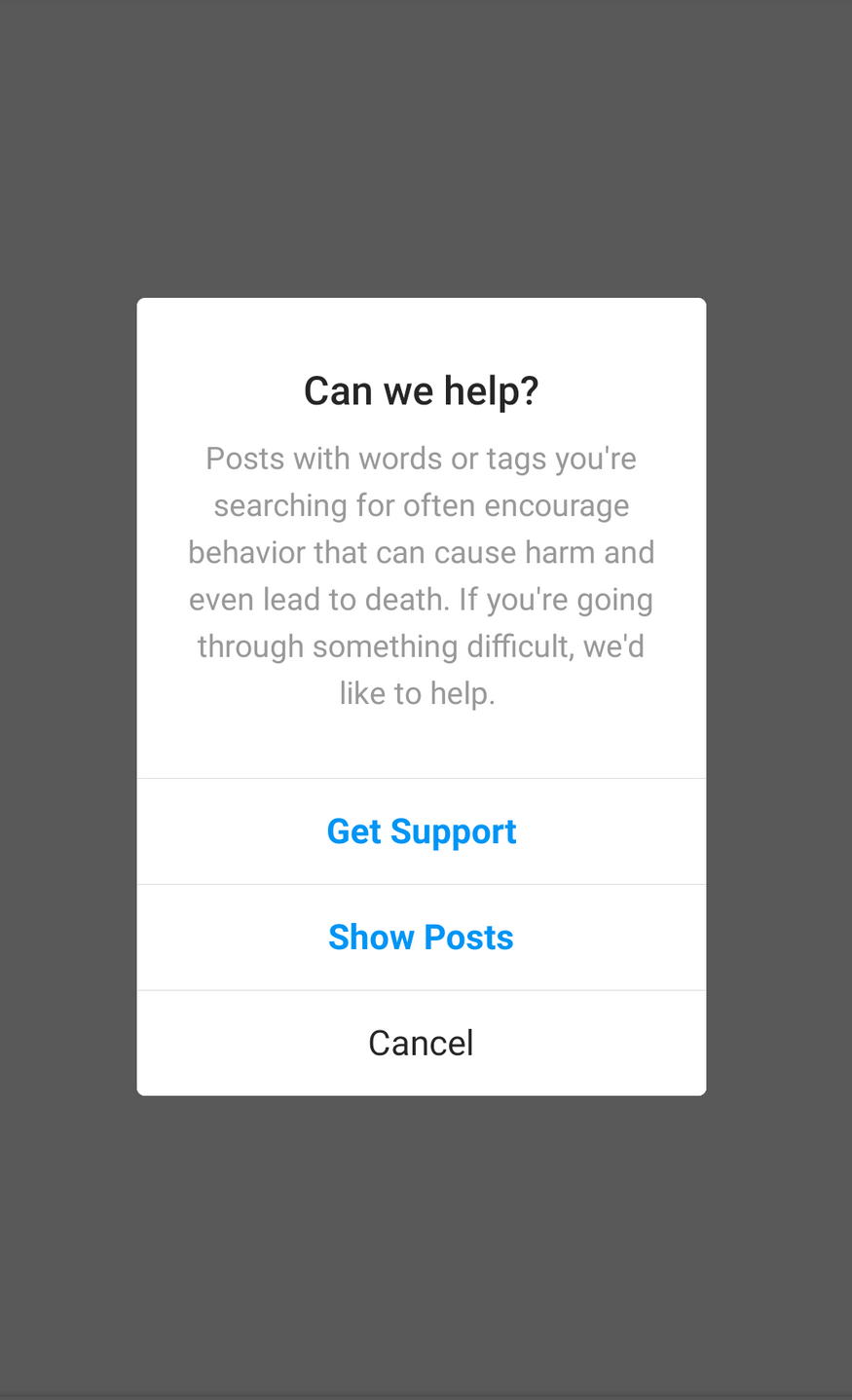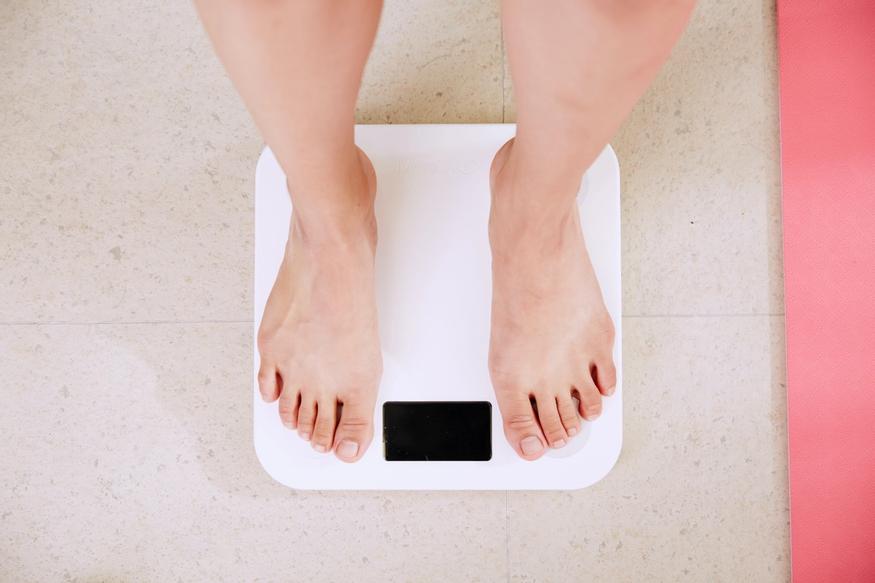The App That Is Fuelling Your Eating Disorder
Published on 6/12/2020
I don’t like to blame my mental illness on others. It feels wrong. I’m someone who takes too much blame on myself, and while this is something I work on in therapy, I still prefer to take the blame for my mental illnesses. I like it because it gives me control over my disorders, if I am the root of it, then I can also be the cure. I’m not saying that you should guilt yourself, or have negative feelings regarding it, I mean that when applicable it can be helpful to know that my BPD stems from genetic roots, a lack of serotonin, and instilled coping mechanisms.
But I have one exception for this, one time that I will gladly place blame. I will point a finger at calorie tracking apps and gladly name them responsible for countless eating disorders in unsuspecting victims. Calorie counting apps cause eating disorders, or at least worsen them.
In terms of food tracking apps, I’m referencing ones like MyFitnessPal, Lose It and FatSecret. They allow you to input everything you eat in a day, how much water you drink and the amount of exercise you do in a day. You keep goals, you fill in your weight as often as you like, and you track your progress.
I first downloaded MyFitnessPal when I was about fifteen. I had never been an overweight child, but I had always felt larger than those around me. I was a chubby baby, and it had gotten me the nickname of “Michelin Baby” (look up the logo to understand). Looking back, it’s clear I was already using food for comfort. I was often home alone and in charge of my own meals. I was a lonely child surrounded by others, I had a sadness within me that I couldn’t understand or express. I don’t think I ever learned how to create a healthy relationship with food, and the effects of that still plague me today. I wanted to be slimmer like the popular girls at school, I wanted to lose weight and have people notice, maybe because I craved an attention that I felt I was lacking. So I started going to the gym and tracking what I ate. And I don’t mean typing in a rough estimate of my meal. I mean every single thing that met my lips. Even if it later left them.
1 grape. 1 cup of tea with 2tsp of milk. ½ a banana. 1 tsp of olive oil with cooking.
I was more than obsessed, I was dependent on it. I panicked about everything I ate until I rationalised it within the app. My daily calorie count was dropping, I wasn’t satisfied until I ate less than 800 calories a day and exercised for a minimum of an hour and a half. I was going to spinning classes three times a week, waking up at 5 to workout before school, working out after school. I was chugging water just to feel full. And my app joined me in this journey, celebrating every step with me. The best days were ones where I matched the exact amount I ate with the calories lost to exercise. Those were also the worst days, the ones that I can barely remember now. I reached a point where I looked up the calories in toothpaste, where I desperately searched for any ‘negative calorie’ foods and tried to sustain myself off of celery.
And my app not only allowed it, it sustained the obsession.
Inconsistency
These apps worsen your fear around food as they work off rounded numbers, off calorie amounts entered by other users. They’re inexact, and will make you think you’re eating far more than you are. For example, when I was using it a banana consisted of 120 calories, a terrifying amount. But the small bananas I ate definitely weren’t reaching this amount, yet I still goaded myself over it. They use the highest, extreme amounts to try and promote weight loss, they parade as a scientific tool without any basis to their information. They give you a rough amount for calories lost to exercise, lacking the tracking tools of an activity tracker. They don’t know your BMI or natural body shape, they don’t see your muscle tone weighing your body down, they don’t see the collar bones that could cut.
Misplaced focus
They are solely focused on calorie amounts. Their free technology is too simple to work past that, to consider different dietary needs and requirements. They consider fruit as a carbohydrate, and give you “Warnings” that you’re eating too much carbohydrates that will lead to weight gain. They present fat to be the worst thing for your body, and turn you against nuts and avocados. They’re based on outdated nutrition facts. If you use them and eat vegetarian or vegan, you will be consistently told that you are eating ‘wrong’, that you will gain weight. They draw your attention to these nitty, easy to measure aspects. They don’t think of nutrition, the vitamins you actually require, the extra sustenance required post-workout.
Rewarding
As humans, we work off goals, we work off praise, and these apps utilise this to have the greatest effect. They remind you of your goal weight daily, and how far you are from it. They praise you if you get closer, if you stay under your required calorie input, and show you red text and sad faces if you’re 5 calories over it. The lack of fuel in your body heightens emotions, makes this the ultimate punishment, a devastating blow. They trap into your reward system and turn it against you. They send you notifications and reminders, they cling onto your conscious and ensure every thought focuses on food.
I don’t see how the app doesn’t have limits, doesn’t have settings that notice “wow, that’s a very low calorie input, let’s send a nice message with some helpful websites attached!”. Even on Instagram, looking at hashtags associated with negative mental health will lead to a warning from Instagram. They offer support above allowing you to proceed to potentially harmful images, they take a second to show that they care, that second you need to hesitate, to reconsider.

What if these food tracking apps were instilled to notice too many calories lost to exercise, to see weight dropping so rapidly and send a little helpful message? Here’s one you can borrow, free of charge, MyFitnessPal.
“Hi there! You need a minimum amount of calories to sustain yourself, and you seem to be dropping under that a lot. Please fuel your body as it needs, and perhaps discuss your weight loss with others. Websites like BEAT and National Eating Disorders could be beneficial, please take a look at these resources.”
The issue with these calorie counting apps is that they view weight loss to always be a good thing, no matter the cost. Weight gain is their enemy, but that isn’t always the case. Sometimes our body needs exercise or healthier food choices, but not weight loss. Some bodies need to gain weight. Some bodies have fat on them and that is wonderful. We’re not in the 90s heroin chic era anymore, of malnourished models dragging themselves across a runaway.
Many people can use these apps in moderation and maybe benefit from them, but the amount that use them to extremes, that are spiralled into eating disorders that will plague their entire life and maybe even take it, those are enough to make these apps a horrible idea.

If we’re going down the blame road, I guess there are several other stops we could make along the way. We could point to fashion magazines, clothing advertisements and the lifesize billboards that perpetuate a beauty stand only real in pixels. We could argue that influencers have a responsibility to be honest, to demonstrate the variation in size and figure. We could turn to our mothers, and ask why they spent our childhood talking about going on a diet, labelling carbohydrates as an evil food group. This is why I try not to look at blame, because it never stops, because it too deeply rooted within culture as we know it.
And the worst part is that even once you realise this, even now when I celebrate beautiful, full women, I still can’t manage to turn it inwards. I will look at the gorgeous chub peeking out of a ladies crop top, but scratch my own until it is red and sore. I will tell everyone that I don’t even weigh myself anymore, but still spend at least ten minutes a day frowning at the full length mirror. One day I wear a fitted dress, the next I insist on an oversized t-shirt during sex. I try to hide from my body, I try to hide my body. The only difference now is that instead of trying to control food to feel better, I mistake food for comfort and seek to fill the emptiness with it. But I don’t have a food tracker, and I never will again. And with that step past me, I will keep dawdling along the baby steps until the day that I look at my reflection and think:
“Damn, give me a piece of that!”
Featured posts

Fleur
Welcome to Symptoms of Living! A place where I like to relieve myself of the barrage of thoughts and ideas filling my mind. Here I'll take a look at various topics, from books to BPD, series to self-harm, there's nothing that we can't, and shouldn't, talk about.
Having struggled with mental illness since the age of 15, one of the hardest parts was how alone I felt in it. While mental illness is beginning to be discussed more openly, and featured in the media, I still think there is room for improvement. So whether it is mental illness or merely mental health, a bad day or a bad year, let's make this a place to approach it and strip it back. Everyone has their own symptoms of living, and you certainly won't be the only one with it.
Would you like to receive my top monthly articles right to your inbox?
For any comments/questions/enquiries, please get in touch at:
info@byfleurine.com
I'd love to hear from you!